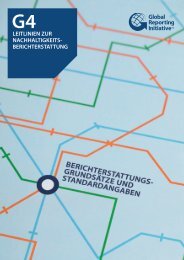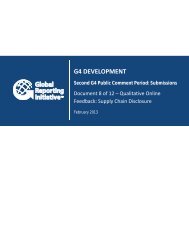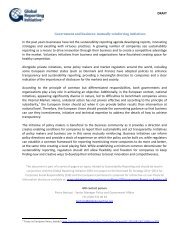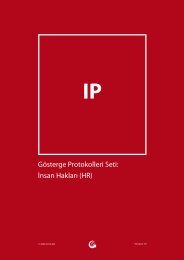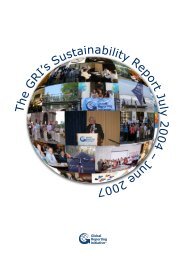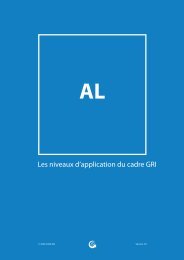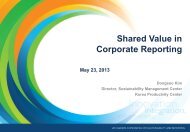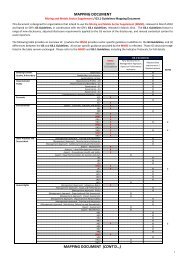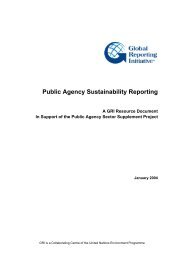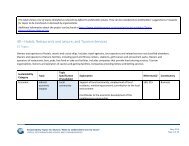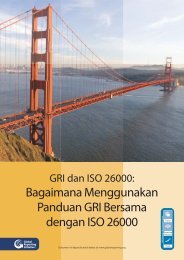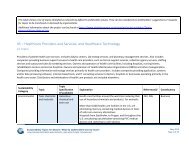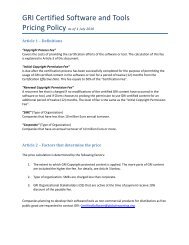CARROTS AND STICKS – PROMOTING ... - Global Reporting Initiative
CARROTS AND STICKS – PROMOTING ... - Global Reporting Initiative
CARROTS AND STICKS – PROMOTING ... - Global Reporting Initiative
Create successful ePaper yourself
Turn your PDF publications into a flip-book with our unique Google optimized e-Paper software.
58 Carrots and Sticks - Promoting Transparency and Sustainability<br />
Country/Region Standards, Codes and Guidelines<br />
polluters’ of the country. The system of environmental<br />
reporting is based on the European PRTR Regulation<br />
(Regulation (EC) No. 166/2006), with additional<br />
requirements that originated from the former Dutch<br />
system, the Environmental Annual Report (MJV). The<br />
environmental reporting system is intended to provide<br />
the government with quantitative information that is<br />
needed to comply with international reporting obligations<br />
(for the EU and the UN), and to evaluate the state of the<br />
environment and the impact of environmental policies.<br />
As required in the PRTR Regulation, the PRTR reports are<br />
assessed by competent authorities, which in the Dutch<br />
situation are provinces, municipalities, water boards or<br />
regional directorates of the Ministry of Public Works. To<br />
date, about 800 facilities submit a PRTR report.<br />
Voluntary standards<br />
Guidelines for the integration of social and<br />
�<br />
environmental activities in the financial reporting<br />
of companies issued by the Dutch Accounting<br />
Standards Board (DASB). As the EU Modernisation<br />
Directive does not provide very specific guidance<br />
on reporting non-financial information, and in view<br />
of considerable interest in social reporting from<br />
Dutch companies and stakeholders, Social and<br />
Economic Council of the Netherlands (SER) (a<br />
government advisory council consisting of employers<br />
and workers´ associations and independent expert<br />
members) proposed that the DASB review its<br />
existing guideline 400 to provide specific guidance<br />
to companies on how to integrate non-financial<br />
information into regular financial annual reports<br />
‘Guideline for Annual <strong>Reporting</strong> 400’. The same<br />
Committee also issued guidance on separate social<br />
reporting. In view of evolving public expectations<br />
about company reporting on CSR, the SER asked<br />
the DASB in July 2008 to review its guideline 400<br />
and guidance on separate social reporting again. The<br />
important change in this update is the inclusion of<br />
reporting on responsible supply chain practices. This<br />
new guidance was issued in November 2009 and will<br />
be applicable to reporting from 1 January 2010.



